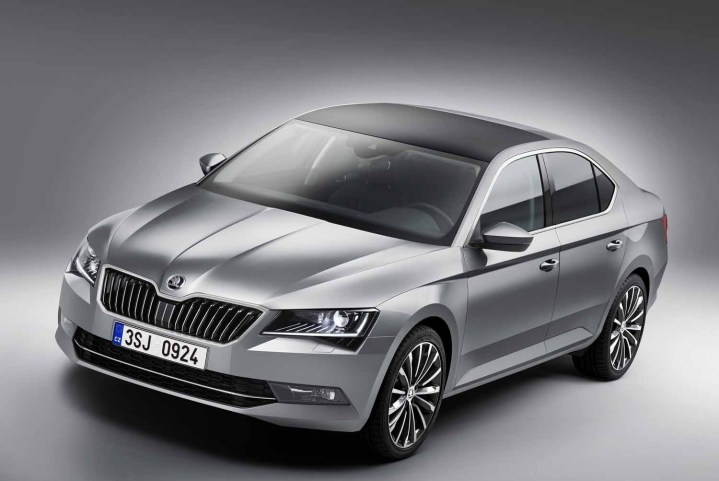
“During the next year, we want to have the question of North America decided for us,” said company CEO Bernhard Maier in an interview with German newspaper Handelsblatt.
Maier stopped short of shedding insight into what Škoda’s U.S. return would bring, but recent trademark filings give us a good idea of which models are being considered for North America. Last June, Škoda moved to protect the names Superb (pictured), Octavia, and Yeti, its three biggest models, and executives have been surprisingly candid about their wish to see the upcoming Kodiak SUV make the trip across the Atlantic.
Tellingly, the trademark filings didn’t include the Citigo, Fabia, and Rapid nameplates. Those are all smaller models — the Citigo is one of the smallest four-door cars in Europe — that undoubtedly wouldn’t sell well here. The Roomster, a van-turned-MPV, was also left out because the segment it competes in is tiny at best.
Škoda sees the U.S. market as a way to keep growing and boost its annual sales. The company hopes to sell its cars in no less than 120 countries by the year 2025, up from 102 today.
Read more: This is what a 21st-century Škoda coupe would look like
We’ll hear more about Škoda’s return to the United States in the coming months as details of the feasibility study it’s carrying out begin to trickle out. Don’t start saving quite yet, because we won’t see Škodas on our shores until 2018 at the very earliest even if the plan gets approved.



